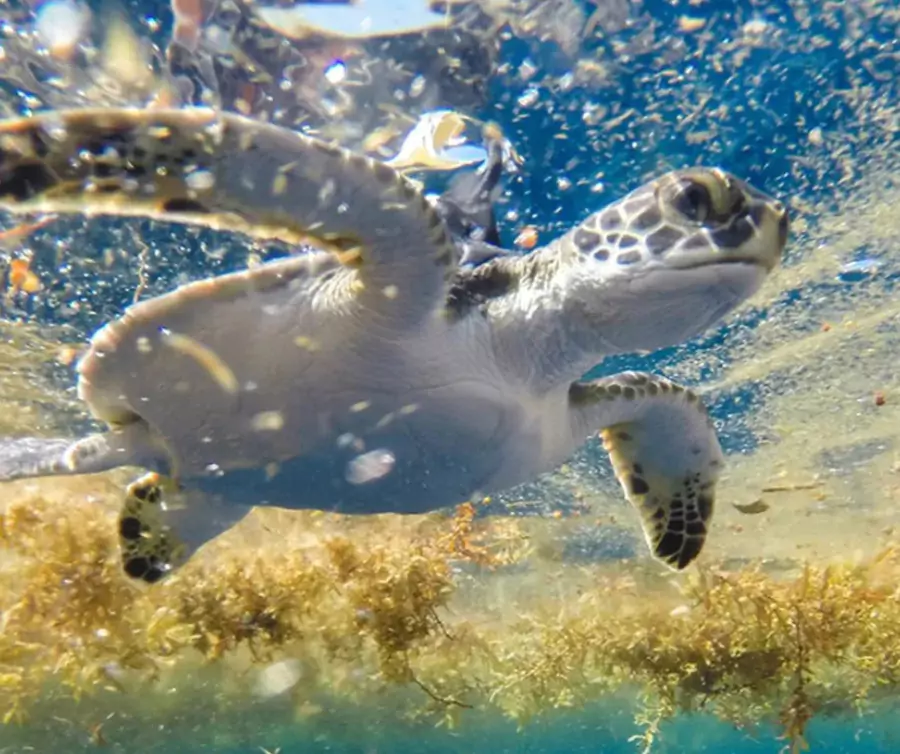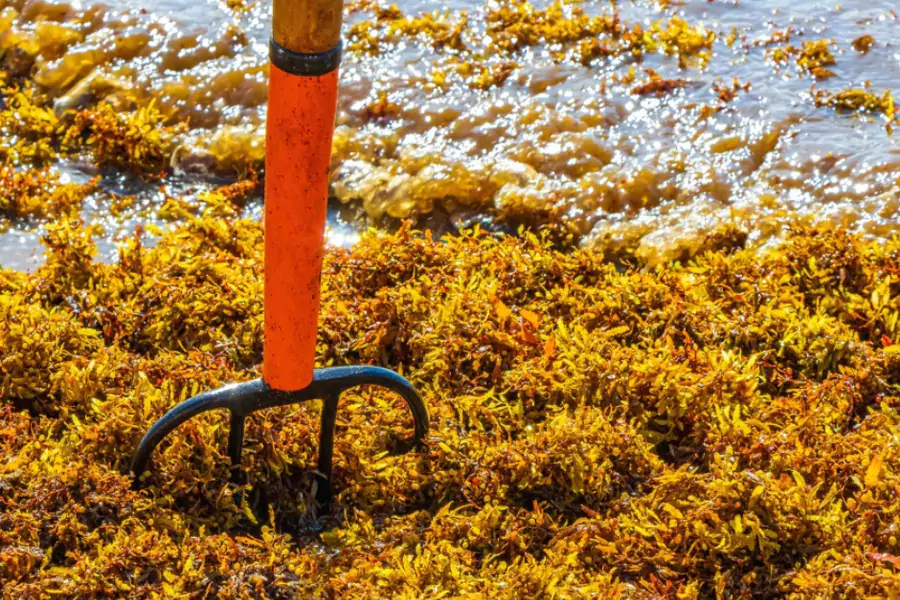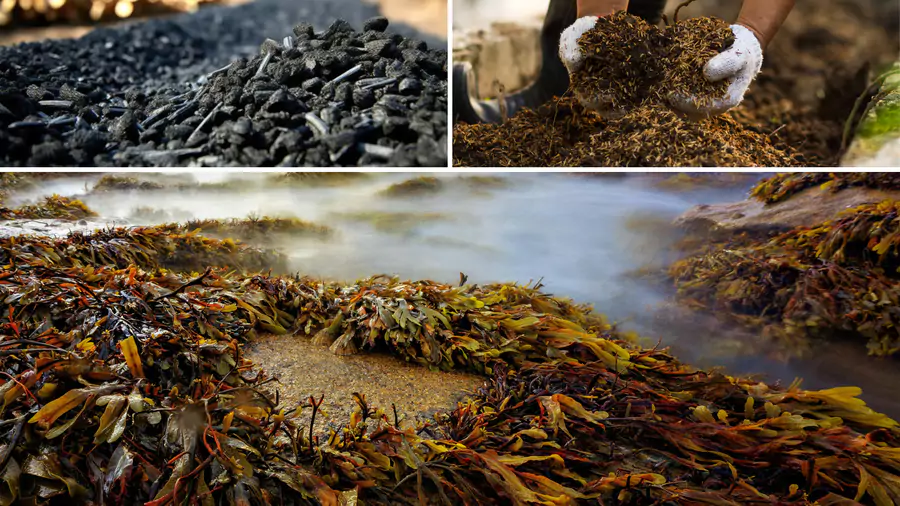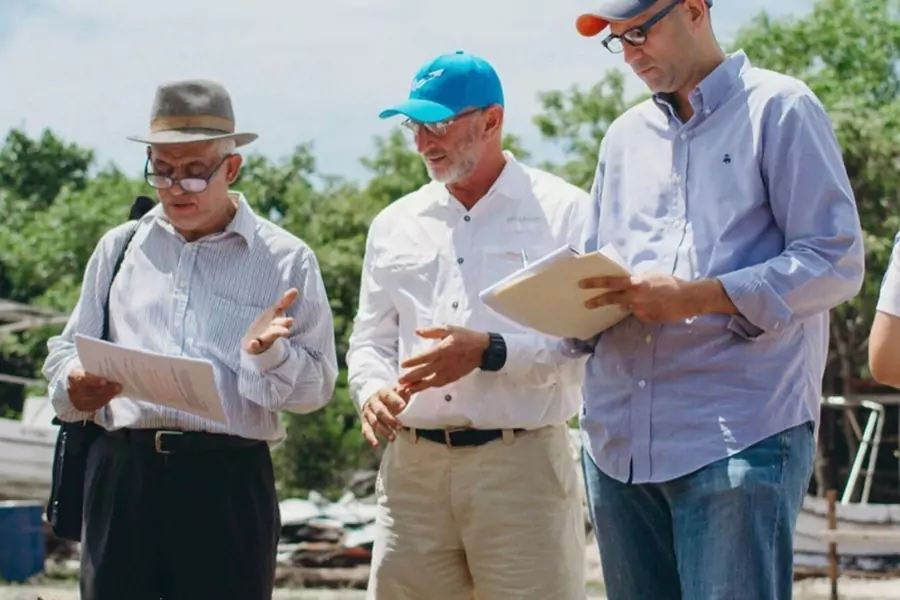In an interview with Michel Kaine, the founder of Grogenics, a Monaco-based company that is leading the fight against the sargassum seaweed crisis, Monaco Life learns how this environmental threat is being transformed into an advantageous sustainable solution.
The Caribbean and Mexico are facing a growing environmental crisis: unprecedented levels of sargassum seaweed are overwhelming coastlines and severely affecting the health of the region’s fragile ecosystems.
The impact stretches beyond mere aesthetics. Coral reefs, mangroves and salt marshes are suffocating under the algae’s weight, while species are struggling too. In just one of many examples, baby sea turtles born on local beaches are being obstructed from reaching the ocean safely. Furthermore, this environmental upheaval is having serious repercussions on human populations, collapsing fisheries and disrupting economies dependent on marine resources and tourism.

Monaco Life spoke with Michel Kaine, the founder of Grogenics, a Monaco-based company that is tackling the issue head on.
During the interview, Kaine shared the origins of his journey into environmental innovation, explaining that it began with his efforts to support farmers in Canada.
“In Canada, one of the biggest challenges for farmers is winter,” he explained. “If they want to grow crops year-round, they need greenhouses, which require heating—and that can be incredibly expensive. I started looking into biomass as a way to enhance crop production while cutting costs, and that’s how I got involved in this field.”
His journey took an unexpected turn when friends introduced him to a new challenge.
“A connection of mine purchased a resort in Antigua, and it was completely overrun with sargassum,” said Kaine. “That’s when I started looking at what could be done with it—and that’s how this project was born.”
Turning a hazard into a solution
“The biggest hurdle is finding a viable use for sargassum,” he continued. “Right now, 99% of the sargassum that’s harvested ends up dumped behind hotels, resorts, or in landfills, where it’s left to rot because people simply don’t know what to do with it.”
This, he added, creates significant environmental concerns: “As it decomposes, sargassum releases greenhouse gases that contribute to climate change. Moreover, dangerous flesh-eating bacteria are now growing on the algae, posing a serious health risk. If you come across a beach with sargassum, my advice is simple: don’t go into the water.”

Grogenics is seeking to address the sargassum crisis by transforming invasive seaweed into useful products like compost and biochar. Additionally, the company employs bioremediation to neutralise toxic heavy metals—a method that has earned recognition from the Inter-American Development Bank.
“This is our main claim to fame,” Kaine shared with Monaco Life.
The process begins with the careful removal of sargassum from the beaches.
“We use ecological methods, avoiding heavy equipment to prevent disturbing the environment,” Kaine explained. “We process the seaweed as quickly as possible, often on the resort premises as part of an agreement with them.”
The harvested sargassum undergoes pyrolysis—a process of burning it at high temperatures to produce biochar, which is then mixed with compost. Kaine noted that Grogenics’ intellectual property lies in its bioremediation techniques, which ensure that the resulting products are both environmentally safe and effective.
Sargassum’s second life
In its current project in Quintana Roo with a resort, Grogenics has implemented a model previously tested in the Dominican Republic, focusing on collaboration with small farmers—an area that draws on Michel Kaine’s early experience. Working with two local municipalities, the initiative supports 150 women in establishing plantations as part of a broader effort to empower local communities.
“What makes me most proud is finding an ecological resort to partner with,” Kaine said. “It’s becoming increasingly difficult to find genuine partners due to the widespread greenwashing by many establishments.”
A key challenge for these farmers is the lack of access to fertilisers for their fields. Grogenics helps address this issue by providing compost made from sargassum, which enhances soil health and supports sustainable farming practices.

A month ago, Grogenics earned Gold Standard certification for its carbon credits, a recognition tied to its work in the Quintana Roo project. The certification confirms the company’s efforts in clearing beaches and restoring biodiversity while maintaining transparency and environmental responsibility.
“You need Gold Standard certification to prove that your credits are sustainable, real and of high quality,” Kaine explained. “It comes with strict requirements for community involvement and environmental sustainability.”
Grogenics is currently the only Monaco-based company with this certification.
“Although I’m sure many others are preparing to meet the requirements,” he added.
Achieving this certification is particularly challenging for projects dealing with sargassum.
“The criteria demand a well-defined project that addresses the regulatory and environmental issues involved,” said Kaine, acknowledging the difficulties of meeting such standards.
Passing the torch
Monaco, with its strong commitment to ocean conservation under the leadership of Prince Albert II, provides a natural base for initiatives like Grogenics.
“I came to Monaco largely because of its focus on the ocean,” explained Kaine. “Monaco is a strong supporter of anything related to marine conservation.”
Kaine also noted the Principality’s growing emphasis on ecological solutions: “There’s a significant movement here toward sustainability, so we felt Monaco was the ideal place to establish Grogenics.”
Grogenics is now focused on engaging the Monaco community in its mission to tackle the sargassum crisis.
“Before we achieved certification, it was difficult to get people to take this issue seriously,” Kaine explained. “Now, with the certification, we have the credibility to demonstrate the importance of our work. This is my first trip back to Monaco since receiving the certification, and I’m hoping to raise awareness and inspire the community to support us.”
While its operations in Mexico remain central, Grogenics is also expanding its efforts to the Caribbean, specifically on the island of St. Lucia.
“A major hotel recently opened in St. Lucia, and it is strongly committed to ecological practices,” said Kaine. “It’s also a smaller government, which makes it easier to establish direct collaborations—something essential for carrying out projects like ours.”
When asked about his vision for the future of Grogenics, Kaine’s answer is straightforward: to scale the impact and pass the baton to the next generation.
“I want young people to take over eventually because building these projects is incredibly time-consuming,” he explained. “I’ve created the template, and now I want to provide the knowledge and tools for others to continue the work. My goal is to involve as many people as possible in these efforts.”
Monaco Life is produced by real multi-media journalists writing original content. See more in our free newsletter, follow our Podcasts on Spotify, and check us out on Threads, Facebook, Instagram, LinkedIn and Tik Tok.
All photos supplied
